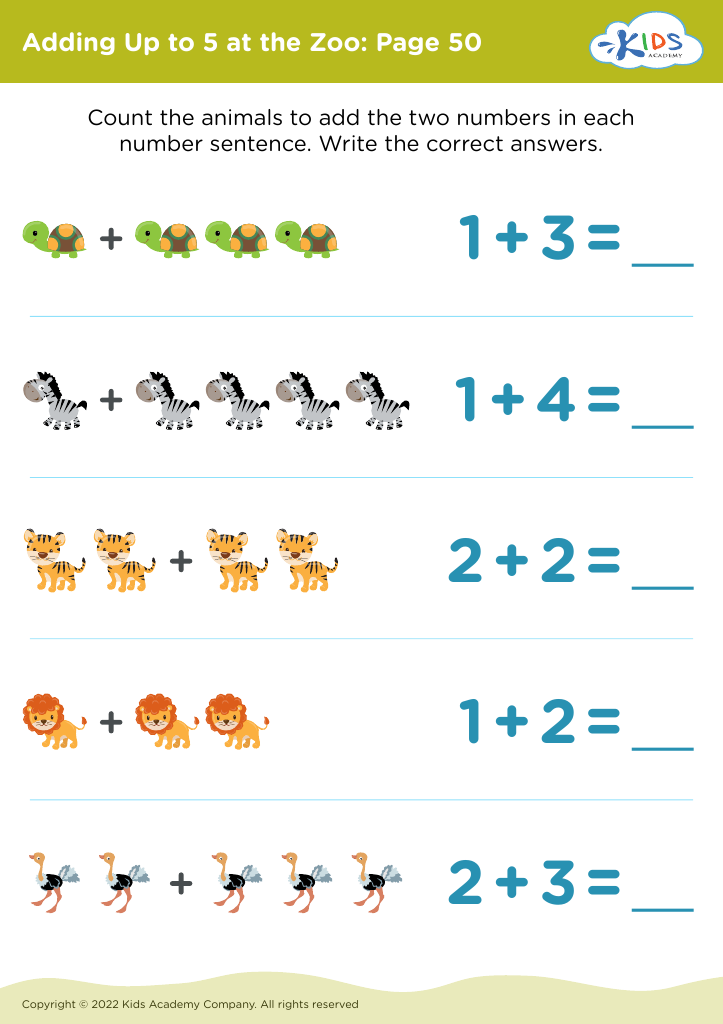Fine motor skills development Addition & Subtraction Worksheets for Ages 4-8
3 filtered results
-
From - To
Enhance your child's fine motor skills while mastering addition and subtraction with our engaging worksheets designed for ages 4-8! These carefully crafted activities not only challenge young learners to practice basic math concepts, but also promote the development of crucial hand-eye coordination and dexterity. Each worksheet incorporates fun exercises, such as tracing, coloring, and cutting, to make learning math an interactive and enjoyable experience. Perfect for homeschooling, classrooms, or extra practice at home, our resources help build confidence and a strong foundation in mathematics. Explore our collection today and watch your child's skills flourish while they learn!
Fine motor skills and early math concepts, such as addition and subtraction, are crucial components of a child's development between ages 4-8. Parents and teachers should prioritize fine motor skills because they lay the foundation for not only academic success in mathematics but also for everyday tasks like writing, tying shoelaces, and using utensils. Activities like threading beads, cutting with scissors, and drawing enhance these skills, enabling children to manipulate objects with precision.
Furthermore, mastering addition and subtraction during these formative years establishes a child's understanding of mathematical concepts. Children who develop a solid grasp of these operations build confidence, which is essential for tackling more complex mathematics later on. Engaging with numbers through hands-on activities, such as counting toys or sharing snacks, fosters a deeper comprehension of quantity and relationships among numbers.
Together, fine motor skills and early math abilities equip young learners with critical cognitive and manual dexterity, promoting independent learning. Supporting children in this developmental stage helps prevent learning challenges in the future, setting a strong foundation for their overall academic journey. Thus, nurturing these skills ensures a holistic approach to a child's growth, supporting them in becoming adept learners.
























